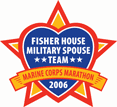Reflection on the 60th Anniversary of the Atomic Bombing of Hiroshima
Today marks the 60th Anniversary of the decision made by the United States to use the atomic bomb in warfare on the city of Hiroshima in order to force the surrender of the Empire of Japan. It was not until a second atomic bomb was dropped on the city of Nagasaki on August 9th, 1945, that the Japanese at last gave in and surrendered to the United States, thus ending World War II. Renewed debate within the nation has driven the political-correctness crowd to label the atomic bombing of Japan in 1945 as a hell-mark for the United States military and an event in this nation’s history that should be viewed with shame and regret. I, however, argue against this theory and believe it was one of the greatest military decisions made in warfare. I am sure I am not the only one, conservative or not, that holds this view. The Pentagon had projected that the United States would have suffered between two-hundred thousand and one-million military casualties were they to have gone forward with the proposed land invasion of the island of Japan. The Empire of Japan was willing to fight to the death, conscripting most of its own citizens to prepare for combat against the Americans once they landed on their shores. This of course would have led to thousands, if not millions, of Japanese casualties. The bombings killed two-hundred and ten thousand Japanese citizens. While devastating, the United States was right in its decision to use it in order to bring an immediate end to World War II with as few American military and Japanese civilian casualties as possible. This could not have come about had the United States not chosen to use the atomic bomb when it did, though numerous military historians believe it could have been used earlier around the time of the Okinawa campaign in which fifty-thousand American military personnel and two-hundred thousand Japanese were killed in the two month siege of the island.



























































<< Home